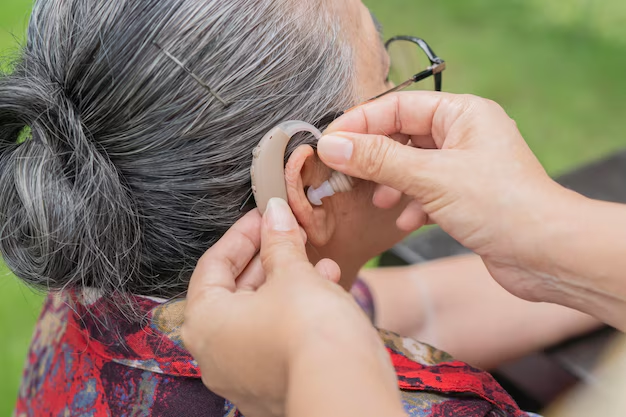Your Guide to Does Medicare Covers Hearing Aids
What You Get:
Free Guide
Free, helpful information about Medicare Insurance and related Does Medicare Covers Hearing Aids topics.
Helpful Information
Get clear and easy-to-understand details about Does Medicare Covers Hearing Aids topics and resources.
Personalized Offers
Answer a few optional questions to receive offers or information related to Medicare Insurance. The survey is optional and not required to access your free guide.
Does Medicare Help Pay for Hearing Aids?
If you or a loved one are grappling with hearing loss, finding out whether Medicare covers hearing aids is a crucial point of inquiry. Understanding the scope of Medicare's coverage can help you navigate your options and manage healthcare costs effectively.
What Does Medicare Currently Cover?
Medicare is divided into several parts:
- Part A covers hospital insurance, funded by payroll taxes.
- Part B provides coverage for outpatient care, doctor visits, and preventive services.
- Part C, or Medicare Advantage, is an alternative that offers additional benefits.
- Part D focuses on prescription drug coverage.
As it stands, Medicare Part A and Part B do not cover hearing aids or exams for fitting them. This gap remains a significant concern for many seniors, as hearing aids can be a substantial out-of-pocket expense.
Exploring Medicare Advantage Plans
Medicare Advantage (Part C) plans, offered by private insurers, can provide options for hearing, vision, and dental coverage. These plans vary widely, so it's essential to compare benefits. Factors to consider include monthly premiums, co-payments, network providers, and any additional benefits that may be included.
These plans may also offer coverage for hearing tests and hearing aids, but benefits will vary significantly by provider and region. Consulting with a Medicare Advantage representative can provide specific information tailored to your needs.
Financial Assistance and Resources
If the cost of hearing aids feels prohibitive, you're not alone. Fortunately, several financial assistance programs can support your journey toward better hearing health:
Medicare Savings Programs can help pay out-of-pocket costs like copayments and deductibles if you're eligible.
Medicaid, a state and federal program for low-income individuals, sometimes covers hearing aids. Benefits differ by state, warranting a thorough check of local eligibility and coverage.
State-based programs through organizations like your local Department of Aging may offer support if you’re a senior citizen in need.
Veterans Affairs (VA) benefits could be an option for those who have served in the military. Veterans may receive hearing services depending on their eligibility and state guidelines.
Taking the Next Steps
Consider contacting local audiology clinics, as some offer sliding scale fees or payment plans. Nonprofit organizations, like the Hearing Loss Association of America, can provide additional support or guidance.
Lastly, staying well-informed is key. Don’t hesitate to reach out to a Medicare coordinator or a healthcare advisor to discuss all available options and the smartest path forward.
Financial Resources for Hearing Aids 🎧
- Medicare Advantage Plans: Check for specific hearing aid coverage.
- Medicaid Benefits: State-dependent assistance.
- Veterans Affairs (VA) Benefits: For eligible veterans.
- Nonprofit Organizations: Aid and support networks.
- State Department on Aging: Localized financial programs.
- Sliding Scale Fee Clinics: Income-adjusted payment options.
- Audiology Payment Plans: Financed hearing solutions.
What You Get:
Free Medicare Insurance Guide
Free, helpful information about Does Medicare Covers Hearing Aids and related resources.

Helpful Information
Get clear, easy-to-understand details about Does Medicare Covers Hearing Aids topics.

Optional Personalized Offers
Answer a few optional questions to see offers or information related to Medicare Insurance. Participation is not required to get your free guide.


Discover More
- Am I Elgible For Medicare
- Am I Enrolled In Medicare
- Am I Qualified For Medicare
- Are Adult Diapers Covered By Medicare
- Are Chemotherapy Drugs Covered By Medicare Part d
- Are Colonoscopies Covered By Medicare
- Are Covid Tests Covered By Medicare
- Are Cpap Machines Covered By Medicare
- Are Cpap Supplies Covered By Medicare
- Are Dental Implants Covered By Medicare
